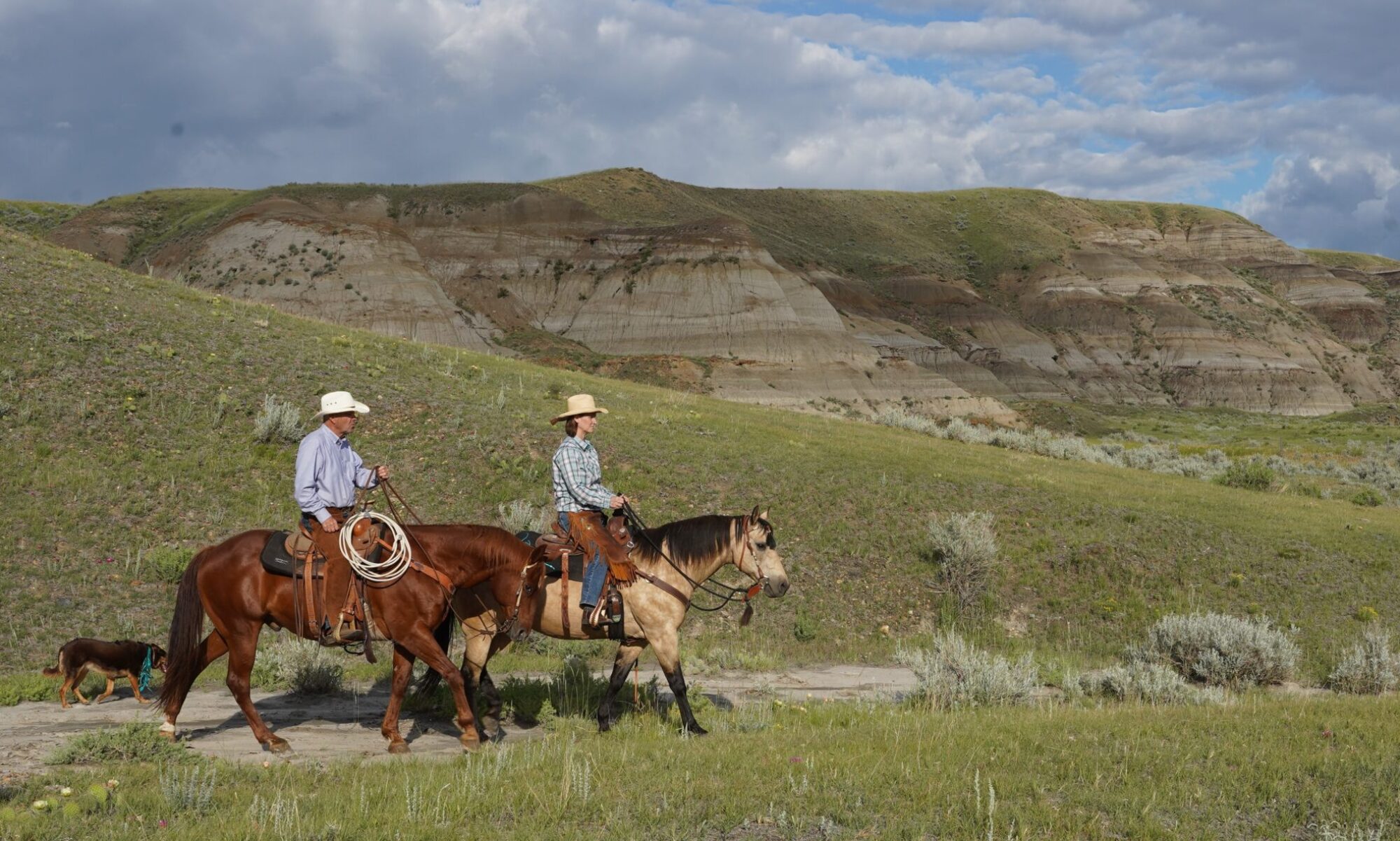Harry Forbes Remembers, Story #21
Here’s an account of a catastrophe that occurred in the Golden Prairie, Bitter Lake and areas north of the Cypress Hills. It was told to me by Ken Sawby and Harry Opsal.
On March 15, 16 and 17th of 1951, a terrible Canadian blizzard blew in from the north-west, one of those where you couldn’t see your hand in front of your face. As near as Ken can recall, the temperature did not get below 0 degrees Fahrenheit.
Jimmy W. Wilson, who had a large sheep/farm operation, was living west of Bitter Lake where there was a good clear water spring. Ken says that an estimated 10,000 sheep drifted in the blizzard into Bitter Lake and drowned; the rest piled up on top and suffocated. One sheep herder perished in the storm and was not found until sometime later, but another managed somehow to survive.
When the storm subsided, the snow melted and the spring weather got hot, those sheep started rotting. When the wind blew in the right direction, the smell was terrible; it carried for miles and almost made you sick. The neighbours finally got together and by soaking the carcasses with kerosene or some flammable substance to make them burn, managed to burn those that were above the water and got rid of some of that awful stink.
At the time of the blizzard, Ken, his mother and the rest of the family were living in Golden Prairie so the children could go to school there. His father, Vern, was out on the farm alone. After the storm, they did not know if he was okay. At the time there were only fence line telephones between neighbors and no phone or communication into Golden Prairie. Ken said that after the storm, he was able to walk on a drift onto the roof of the school. There were drifts by trees 20 feet deep and large drifts all over.
Ken borrowed a pair of homemade skis to travel the eight miles, as the crow flies, over drifts and hollows. He, being no skier, was plumb pooped when he got to the farm to see if his dad had survived. He found that Pop was pretty tough and in good shape.
The horses needed to be tended to, but here it was, blizzarding again. Knowing that to go out in the blizzard without a guide line would be fatal, he found a ball of binder twine, tied one end to the house door knob and stringing it out. Holding on firmly, he tried three times to find the barn where his dad had a team of horses. On the third trip he found the wind charger and from there the barn where he walked on a snow drift up onto the barn roof. He thought he had been there before, but didn’t know it. The other side of the barn was open so he was able to carry water to his horses.
Ken stayed with his dad for a few days after the storm subsided.
Any of the grain bins that were not full had a lot of snow or were full of it, the snow having blown in through a knot hole or any other opening. A great deal of grain spoiled when the snow was not cleaned out.
Both Ken and Harry say that many of the house attics had snow in them. In those where the snow was not cleaned out, it melted and leaked down through the ceiling.
By the size of the snow drifts and amount of snow, it was estimated that there was five feet or 60 inches of snow.
When the snow melted in the spring, there was such a water flow that the railroad and some roads in the draw were washed out. The old wooden bridge had been mostly dismantled and the spring flood finished it.
I want to add an incident to show blizzards could be expected during any spring month. On a nice warm day in April 1927, mother’s sister Rosie and her husband Gilbert Opsal, from 12 miles on the north side of the Bitter Lake draw, had come by horse and buggy to visit us. They were planning to stay the night.
The day was so warm that Dad and Gilbert sat on the north side of our homestead house to get out of the hot sun to visit. Gilbert smoked a pipe and had his tobacco can with him. When they returned to the house that evening, he forgot and left his tobacco can sitting outside.
That night a terrible blizzard came up with heavy snow. The double doors on one end of the barn were drifted shut so they had to enter the barn from the other end. But the worst tragedy of all, Gilbert’s tobacco can blew away, never to be found. It’s pretty hard to smoke your pipe with no tobacco.
